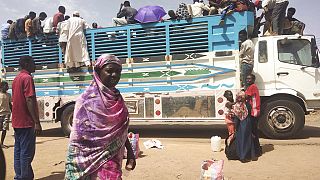The Morning Call
The world has been living for almost a quarter with the coronavirus psychosis. The sudden appearance of this new virus, as is currently the case with the SARS-CoV-2, the coronavirus, is a worrying event because of the difficulty of effectively treating viral infections. The race for the vaccine has begun.
Many countries and major pharmaceutical companies are working to develop a vaccine and drugs to treat the pandemic, with initial results expected later this year or early next year. The first results could be available later this year or early next year, said Jerome Kim, director of the Seoul-based International Vaccine Institute (IVI).
He explained that it normally takes years to develop a treatment for a virus, but the COVID-19 outbreak is an emergency that requires a rapid response.
“I guess COVID-19 was discovered in late December and the rest of the world didn’t know the sequences of the virus until late January. So it’s quite remarkable that we’re even saying that we’re in the pre-clinical stage now, where candidate vaccines are being tested in animals, with some companies anticipating that they could start at the end of this month, and others that they will start in humans in April. So we are in the pre-clinical phase and we are entering phase 1 for some of the candidate vaccines”, Kim said.
Viruses are obligate parasites, which means they cannot survive without a host. They use our own cells as reproduction factories and are therefore not affected by antibiotic treatments. This makes it extremely difficult to develop drugs that can specifically block viral progression in our bodies without causing significant toxic effects on our own cells.
So the most effective way to fight viral infections is by vaccination: by introducing a harmless version of the virus, the vaccine, into the body. The vaccine allows the immune system to develop antibodies that will neutralize the virus as soon as it enters the body to block the infection at the source, before the virus is able to settle permanently inside our cells.
In the absence of drugs or vaccines, the crucial first step is to detect viral infection as quickly as possible to identify carriers of the virus and isolate them from the healthy population. This is particularly true for CoV-2-CoV-RASS, as current data indicate that this virus is highly contagious and the respiratory illness it causes (called COVID-19) is associated with a mortality rate of about 2%, which is about 20 times higher than seasonal influenza.
Moreover, even if the vast majority of infected people do not develop serious diseases, they nevertheless represent vectors that can infect more vulnerable people who are particularly at risk of severe complications, especially the elderly or those affected by diseases such as diabetes, cancer, among others. The best hope remains vaccination, and a race against time has already begun, with more than 20 vaccines being developed worldwide.
It is estimated that it could take 12 to 18 months to develop a vaccine against CoV-2 SARS. But COVID-19 is unknown and holds many twists. Hope or controversy comes from French infectiologist, Didier Raoult. He advocates the use of chloroquine to treat patients with Coronavirus. He cites the conclusive trials he has conducted on several patients as proof if he seems to have the attention of the French Ministry of Health.
According to AFP, “The clinical trials of chloroquine, conducted in Marseille to treat patients with COVID-19 are “promising” and will be extended, the government said Tuesday as it still advocates the use of this anti-malarial drug to those seriously affected.’‘
Some doctors raised accusations regarding tests and to give rise to false hopes.
In any case, the availability of a vaccine would be a remarkable achievement. It is hoped that the mobilization of the scientific community at the international level will make it possible.





![Africanews celebrates fifth anniversary [Night Shift]](https://static.euronews.com/articles/stories/05/57/72/74/320x180_cmsv2_6b1e7837-a917-526b-b3b4-4582a3f8bcac-5577274.jpg)
![Africanews celebrates fifth anniversary [Morning Call]](https://static.euronews.com/articles/stories/05/57/72/70/320x180_cmsv2_a6c857d4-80a3-510a-88e6-f060ea8d9ee9-5577270.jpg)






Go to video
Dicovery: scientists believe mystery fossil is Denisovan, early human ancestor
10:19
New study explains why is Mars red
01:45
Scientists use new technology and AI to discover animal intelligence
01:37
South Africa's refurbished Digital Dome set to open in February 2025
01:10
Cameroon reintroduces measures to curb COVID-19 resurgence
01:25
Past COVID infections may help protect against certain colds - Study